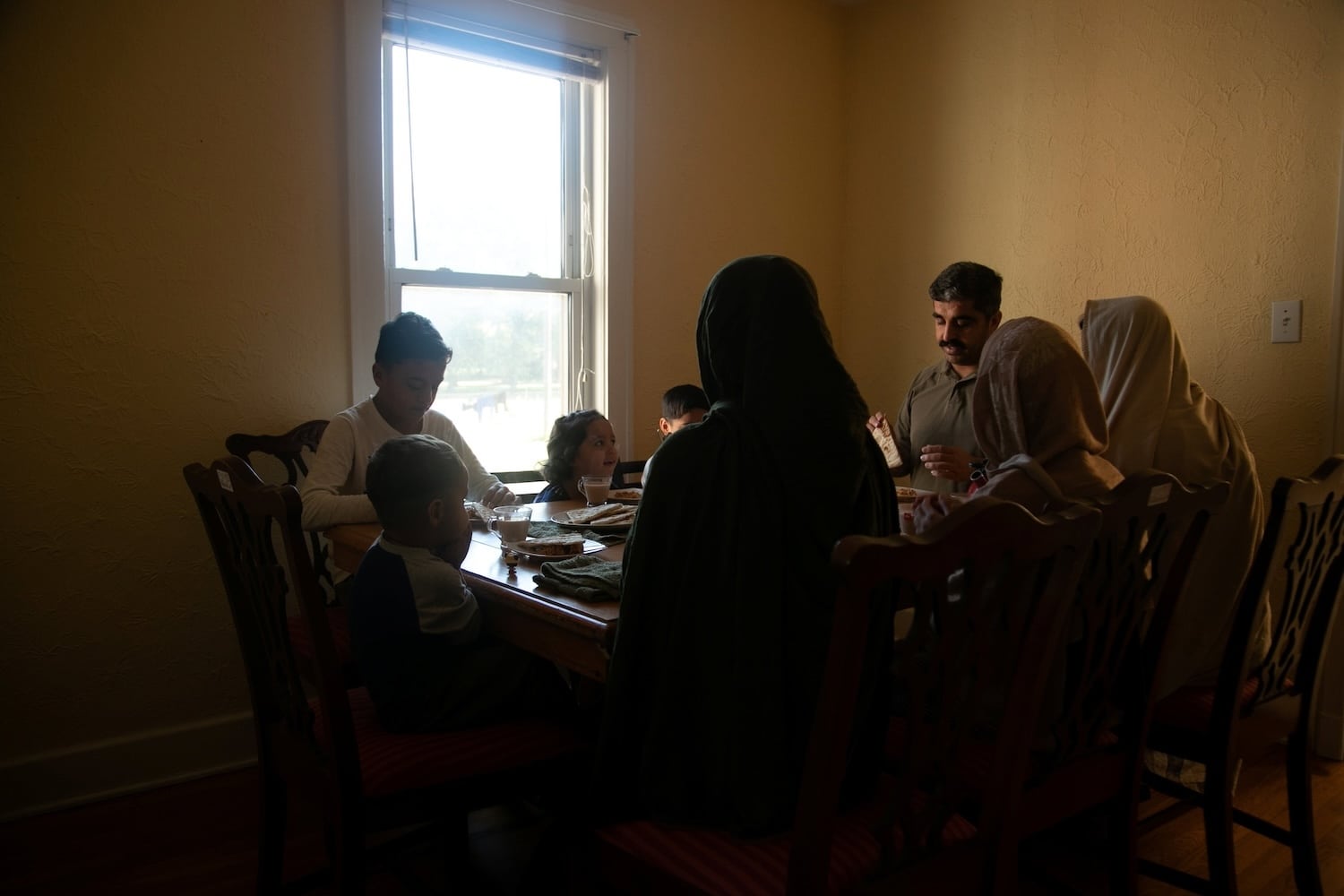The weight of the moment didn’t strike me until we were standing on a downtown street corner outside the credit union, trying to ignore the frigid air. The mother — I’ll call her Maryam — suddenly turned to me, teary-eyed and clutching her paperwork, and gave me a tight hug. Our hour of waiting awkwardly in the lobby — we couldn’t speak each other’s languages — and passing documentation back and forth to a teller had resulted in an opened checking account, which meant access to the meager but life-saving salary she was pulling in as a seamstress. It meant independence and autonomy after the trauma of fleeing her native Afghanistan with her children, waiting restlessly in a refugee camp, and arriving in mid-Michigan in the middle of winter and the peak of a pandemic. However slowly she signed the application form, this was an affirmation of dignity — the dignity of a mother who dared to survive. And it happened because a few days ago, we’d practiced writing her name in English.
Over the past weeks, as accusatory claims against immigrants and even the Catholic charities who help them have reached a fever pitch, I’ve been thinking about those months in early 2022 when about 300 hundred Afghan refugees were flown to our city and essentially deposited into the arms of our diocesan Catholic Charities’ Refugee Services. I’d just gotten clearance to be a volunteer mentor to refugees, and suddenly there were 300 of them.
Meeting refugees in their need
“Can you start teaching this family English?” an overwhelmed case worker asked the first day when my three-year-old and I showed up to the hotel that served as temporary group housing. She paused: “Well, first they need to learn the alphabet.”
Today, when I see fellow Catholics taking to social media to demand an extraordinary burden of proof that no Haitian immigrants have ever in their life done something nefarious to a cat or bother a waterfowl, I think of what it really looked like to engage constructively with refugees and enter into the most vulnerable moment of their lives.
I think of being welcomed into a hotel room that was now home for five people: a family that had been stripped of everything and experienced unfathomable loss, but still filled my daughter’s pockets with nuts and coffee-flavored candy each time we left. I think of sitting on the worn carpet, five shining pairs of brown eyes looking with excited anticipation at the Scrabble tiles I’d scattered in front of us. And I think of arranging the letters of each family member’s name — trusting their immigration forms had anglicized the spellings correctly — then miming for them to copy the tiles, left to right, on their own paper. The children, who missed school, wrote eagerly, even while making the unfamiliar strokes. The mother was slower, more deliberate.
M – A – R – Y – A – M. Her thin, shaky letters were not unlike my preschooler’s. It took me a couple sessions — the interpreters were in high demand and long gone — to realize she was illiterate.
The hidden work of God’s kingdom
These were holy moments, I vaguely grasped, sometimes needing time or another context, like when we went to the credit union, to let their significance sink in. I mean “holy” in a very real sense. When there is no common language, no shared culture between you, only a vast gulf filled with each other’s incommunicable stories and experiences, there is only one thing left: our dignity as sons and daughters of God.
And when we are given that precious gift, that opportunity to behold him in another, we have a choice. We can come with reverence, receiving the other just as we receive him every time we worship at Mass. Or we can show up looking for a fight. We can choose to meet the gaze of individuals, or we can let our vision be captured by headlines and hyperbole. We can make the easy retreat to ideological tribes that affirm our biases. Or we can do the work of calling the charities on the ground, driving a refugee to her appointment, finding winter boots for her children’s first Midwest winter. It’s hard, slow, hidden work, but isn’t that the way of the kingdom of God?
Our immigration system is broken, and neither major party has the will or genuine desire to fix it. But even if solving that crisis is beyond our sphere of influence as private citizens, choosing our Catholic response to the human beings before us is not.
I realize not everyone is called to one-on-one work with recent immigrants and refugees. Last year brought new changes to our family, and I had to step back. Still, refusing to sink into dehumanizing language is within each of our grasp. The lack of just border policies does not absolve us from gossip, lies and calumny about entire groups of people — or from wielding vulnerable people’s plight for political ends. There is always tension when cultures collide, but as I learned, there is also goodness, truth and beauty. That space between is always where the Church has flourished in her most creative evangelization and courageous service to those most in need.
Two years ago, I found the kingdom of God in a hotel full of refugees. It is in Springfield, Ohio. It is in all our dioceses, our cities, our hearts, if we allow it to take root.








